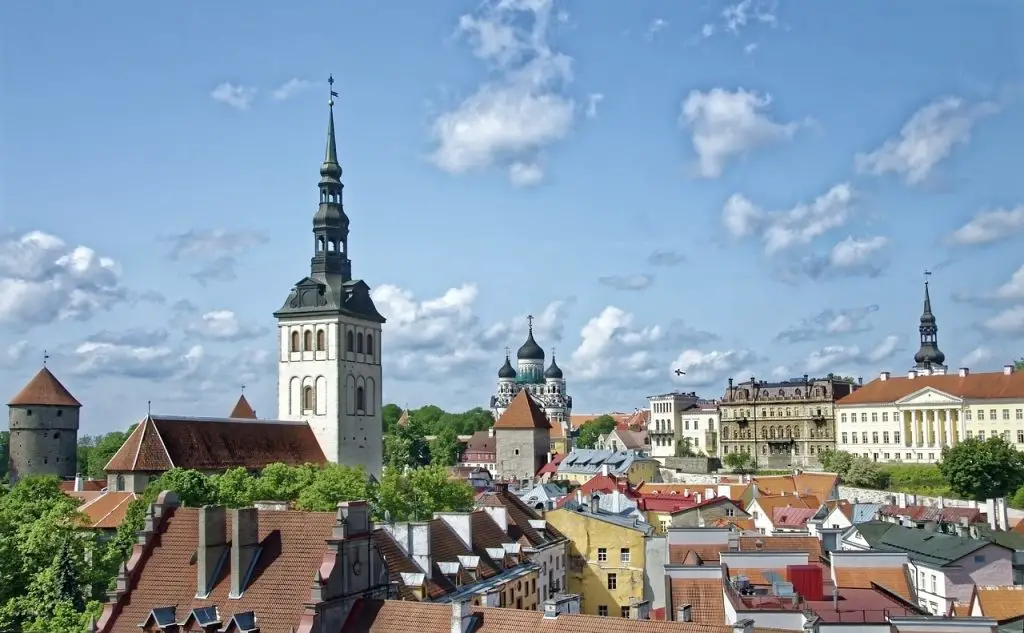As digital nomads, individuals with location-independent careers have the unique opportunity to live and work from anywhere in the world. With just a laptop and a stable internet connection, these professionals can work remotely, while exploring diverse cultures, learning new languages, and meeting fascinating people. However, not all countries are equally suitable for digital nomads, as factors such as cost of living, internet connectivity, and visa regulations can significantly impact one’s experience. In this article, we will explore the top countries for digital nomads and the factors that make them particularly appealing.
Thailand
Thailand has long been a favorite destination for digital nomads, thanks to its low cost of living, beautiful beaches, and rich cultural heritage. The country’s warm climate, friendly people, and abundance of co-working spaces make it an ideal location for remote workers. The bustling city of Chiang Mai, in particular, has emerged as a digital nomad hotspot, offering excellent infrastructure, affordable housing, and a vibrant expat community.
Pros:
Low cost of living
Warm climate
Beautiful beaches and natural attractions
Excellent food and cuisine
Cons:
Visa regulations can be complicated
Language barriers for English speakers

Estonia
Estonia, a small Baltic nation in Northern Europe, has rapidly become a digital nomad haven. In 2020, the country introduced the Digital Nomad Visa, which allows remote workers to live and work in Estonia for up to a year. Tallinn, the capital city, boasts a thriving tech scene, fast internet, and a growing number of co-working spaces. The cost of living is relatively low compared to Western Europe, and the country’s location provides easy access to other European destinations.
Pros:
Digital Nomad Visa available
High-speed internet
Accessible location for exploring Europe
Safety and low crime rates
Cons:
Cold winters
Limited cultural diversity

Portugal
Portugal has become an increasingly popular choice for digital nomads, thanks to its favorable climate, beautiful coastline, and affordable living costs. The country offers a strong internet infrastructure and a growing number of co-working spaces, especially in the capital city of Lisbon and the coastal town of Porto. Portugal also offers a relatively easy path to residency through the D7 Passive Income Visa, which can be attractive to long-term digital nomads.
Pros:
Mild climate and beautiful coastline
Affordable cost of living
Strong internet infrastructure
D7 Passive Income Visa
Cons:
Portuguese language may be challenging to learn
Limited job opportunities outside of remote work

Mexico
Mexico is an increasingly popular destination for digital nomads, thanks to its proximity to the United States, diverse landscapes, and rich culture. Cities like Mexico City, Oaxaca, and Guadalajara offer a mix of urban living, art, and history, while beach towns like Playa del Carmen and Puerto Vallarta provide a more relaxed atmosphere. Mexico offers a six-month tourist visa, which can be renewed relatively easily, and the cost of living is generally lower than in the United States or Western Europe.
Pros:
Proximity to the United States
Diverse landscapes and rich culture
Six-month tourist visa
Affordable cost of living
Cons:
Safety concerns in certain regions
Spanish language skills may be necessary

Bali, Indonesia
Bali, an Indonesian island known for its lush landscapes and vibrant culture, has long been a popular destination for digital nomads. The island offers a low cost of living, warm climate, and excellent surfing spots, making it an attractive option for remote workers seeking a laid-back lifestyle. The town of Ubud, in particular, has become a hub for digital nomads, with numerous co-working spaces, yoga studios, and healthy cafes catering to the expat community. Bali’s unique blend of natural beauty, spirituality, and creativity has made it an inspiring destination for those seeking personal and professional growth.
Pros:
Low cost of living
Warm climate and beautiful scenery
Rich culture and spirituality
Growing digital nomad community
Cons:
Visa regulations can be complex
Slow and inconsistent internet in some areas
Limited access to Western amenities

Spain
Spain, with its warm climate, beautiful architecture, and delicious cuisine, has become a popular destination for digital nomads. Cities like Barcelona and Madrid offer a vibrant urban lifestyle, while smaller towns like Valencia and Seville provide a more relaxed atmosphere. The country’s strong internet infrastructure, abundance of co-working spaces, and affordable cost of living make it an attractive option for remote workers. Spain’s Non-Lucrative Visa also allows digital nomads to reside in the country for up to a year, provided they can prove financial independence.
Pros:
Warm climate and beautiful architecture
Affordable cost of living
Strong internet infrastructure
Non-Lucrative Visa option
Cons:
Spanish language skills may be necessary
Bureaucracy can be challenging

Vietnam
Vietnam has become a popular destination for digital nomads, thanks to its low cost of living, rich culture, and rapidly developing infrastructure. Cities like Ho Chi Minh City and Hanoi offer an exciting urban lifestyle, while smaller towns like Da Nang and Hoi An provide a more relaxed pace of life. Vietnam’s internet speeds have improved dramatically in recent years, and the country now boasts a growing number of co-working spaces and digital nomad-friendly cafes.
Pros:
Low cost of living
Rich culture and history
Improving internet infrastructure
Diverse landscapes and natural beauty
Cons:
Visa regulations require regular renewals or border runs
Traffic and pollution in urban areas
Language barriers for English speakers
Conclusion
The ideal country for a digital nomad depends on individual preferences and priorities. Factors such as cost of living, internet connectivity, and visa regulations are important considerations, but ultimately, personal interests, work-life balance, and cultural compatibility will also play a significant role in determining the perfect destination. Thailand, Estonia, Portugal, Mexico, Bali, Spain, and Vietnam are all excellent options for digital nomads, each offering unique attractions and benefits. By carefully evaluating the pros and cons of each location, remote workers can find the ideal country to call their home away from home as they embark on their digital nomad journey.














